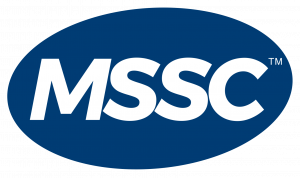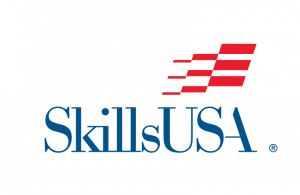 As we look to the future of Career Technical Education (CTE), Advance CTE continues to support high-quality CTE programs created through legislation that addresses key challenges and opens new opportunities for learners and educators alike. In this blog, Policy Associate Velie Sando highlights recent state policies that can play a crucial role in shaping a more dynamic, accessible, and industry-aligned landscape.
As we look to the future of Career Technical Education (CTE), Advance CTE continues to support high-quality CTE programs created through legislation that addresses key challenges and opens new opportunities for learners and educators alike. In this blog, Policy Associate Velie Sando highlights recent state policies that can play a crucial role in shaping a more dynamic, accessible, and industry-aligned landscape.
Breaking Down Barriers
Apprenticeships offer intensive, high-quality programs, but are often limited in availability and accessibility. South Carolina’s S.B. 557 tackles this issue by offering substantial tax credits to employers who hire apprentices. This incentive, which can amount to up to $4,000 per apprentice for four taxable years, encourages businesses to invest in on-the-job training and education. By making apprenticeships more financially viable for employers, South Carolina is expanding opportunities for learners to gain valuable work experience and industry-recognized credentials.
Empowering Educators
Addressing the shortage of qualified CTE educators and instructors in many states is crucial to expanding program quality and accessibility. Delaware’s S.B. 188 addresses this by enhancing educator mobility across state lines. By allowing CTE educators with valid licenses to obtain equivalent authorization in other member states, this legislation removes geographical barriers and expands the pool of qualified instructors. This not only benefits those looking for new opportunities but also ensures that learners have access to experienced educators with diverse backgrounds.
Hawai’i’s S.B. 2257 takes a different approach to the same problem by broadening the qualifications for CTE instructors. By considering candidates with associate’s degrees or even high school diplomas combined with relevant experience, Hawai’i is opening doors for industry professionals to bring their expertise directly into the classroom. This policy elevates skills-based hiring practices in CTE by recognizing that practical skills and real-world knowledge are invaluable.
Data-Driven Decision Making
Colorado’s H.B. 1364 demonstrates a commitment to understanding and improving CTE outcomes through comprehensive data analysis. The law establishes the Colorado state longitudinal data system governing board to support the development and implementation of the data system, which is created to improve data connectivity and analysis concerning education and workforce readiness statewide. The law also authorizes a cost analysis of postsecondary and workforce programs and credentials to local education providers. By commissioning a financial study on the costs and benefits of college credit opportunities, industry credentials, and work-based learning experiences, Colorado is laying the groundwork for evidence-based policy decisions.
Tomorrow’s CTE Puts Learners in the Driver’s Seat
By expanding apprenticeship opportunities, ensuring access to qualified teachers, and gathering data on program effectiveness, states are creating an environment where learners can make informed decisions about their educational and career paths. Simultaneously, the emphasis on industry credentials and work-based learning experiences ensures that CTE programs are closely aligned with the needs of today’s employers, preparing learners for success in the future workforce.
 To access our state policy tracker and explore other innovative CTE-connected policies, visit Advance CTE’s State Policy Resources page.
To access our state policy tracker and explore other innovative CTE-connected policies, visit Advance CTE’s State Policy Resources page.
Velie Sando, policy associate



 Dear State Career Technical Education (CTE) Leaders and Partners,
Dear State Career Technical Education (CTE) Leaders and Partners, In a world where competition for jobs, pay increases, and academic success continues to increase, certifications offer hope because they are a credible, third-party assessment of a candidate’s skill and knowledge for a given subject. To empower learners with these credentials to succeed, school districts across Illinois partnered with Certiport, helping bring industry-recognized certifications to schools and learners in their communities. Discover how this impacted students and employers in their respective areas.
In a world where competition for jobs, pay increases, and academic success continues to increase, certifications offer hope because they are a credible, third-party assessment of a candidate’s skill and knowledge for a given subject. To empower learners with these credentials to succeed, school districts across Illinois partnered with Certiport, helping bring industry-recognized certifications to schools and learners in their communities. Discover how this impacted students and employers in their respective areas. The National Council for Agricultural Education (NCAE) and the Center for Energy Workforce Development (
The National Council for Agricultural Education (NCAE) and the Center for Energy Workforce Development ( Learners today face immense pressure to find the right path for success after high school. In fact,
Learners today face immense pressure to find the right path for success after high school. In fact, 
 As the leading workforce development organization for learners, SkillsUSA is proud to be leading the way to help America’s future workforce. Approaching our 65th anniversary in 2030, we continue to focus on preparing learners for careers in trade, technical, and skilled service occupations. With the support of over 850 national partners, SkillsUSA is committed to addressing our nation’s workforce challenges with bold solutions and steadfast dedication.
As the leading workforce development organization for learners, SkillsUSA is proud to be leading the way to help America’s future workforce. Approaching our 65th anniversary in 2030, we continue to focus on preparing learners for careers in trade, technical, and skilled service occupations. With the support of over 850 national partners, SkillsUSA is committed to addressing our nation’s workforce challenges with bold solutions and steadfast dedication. 
 A New Beginning
A New Beginning